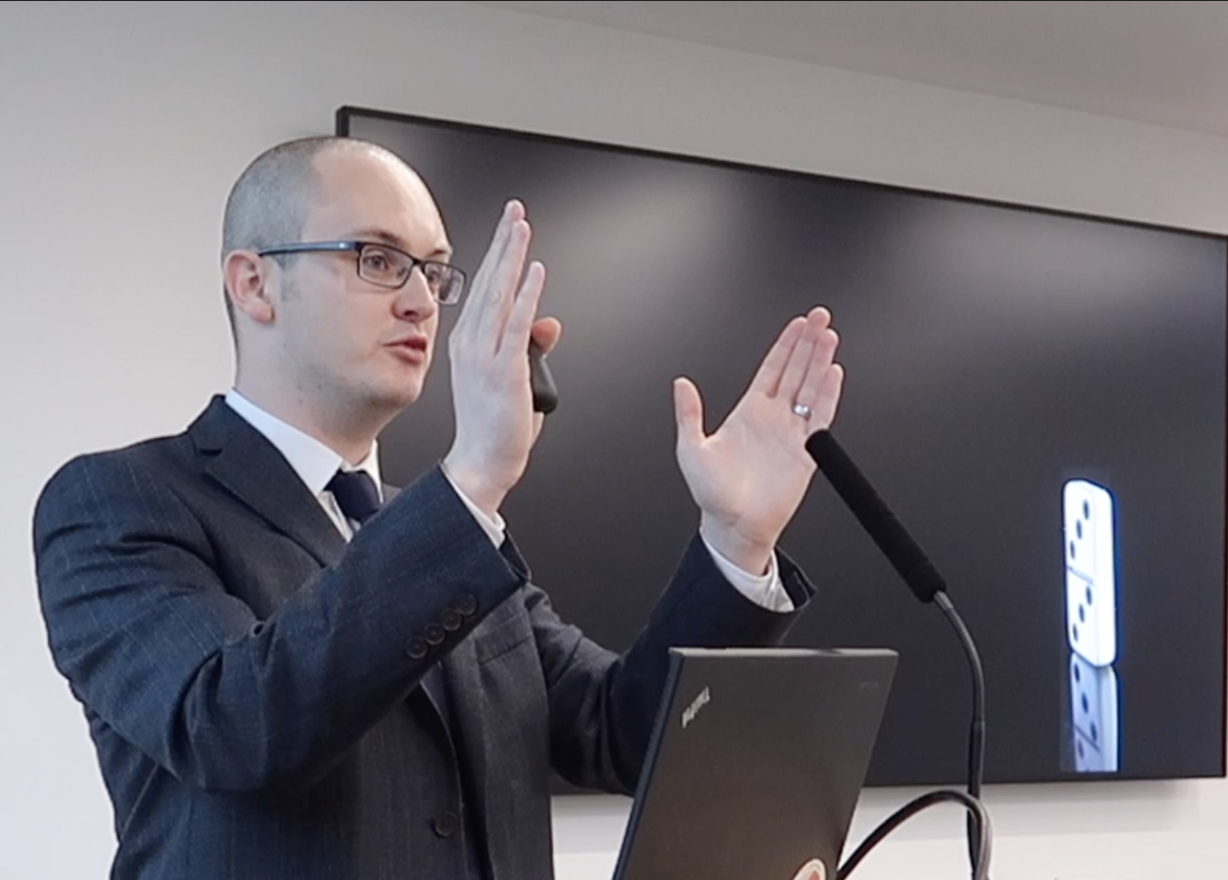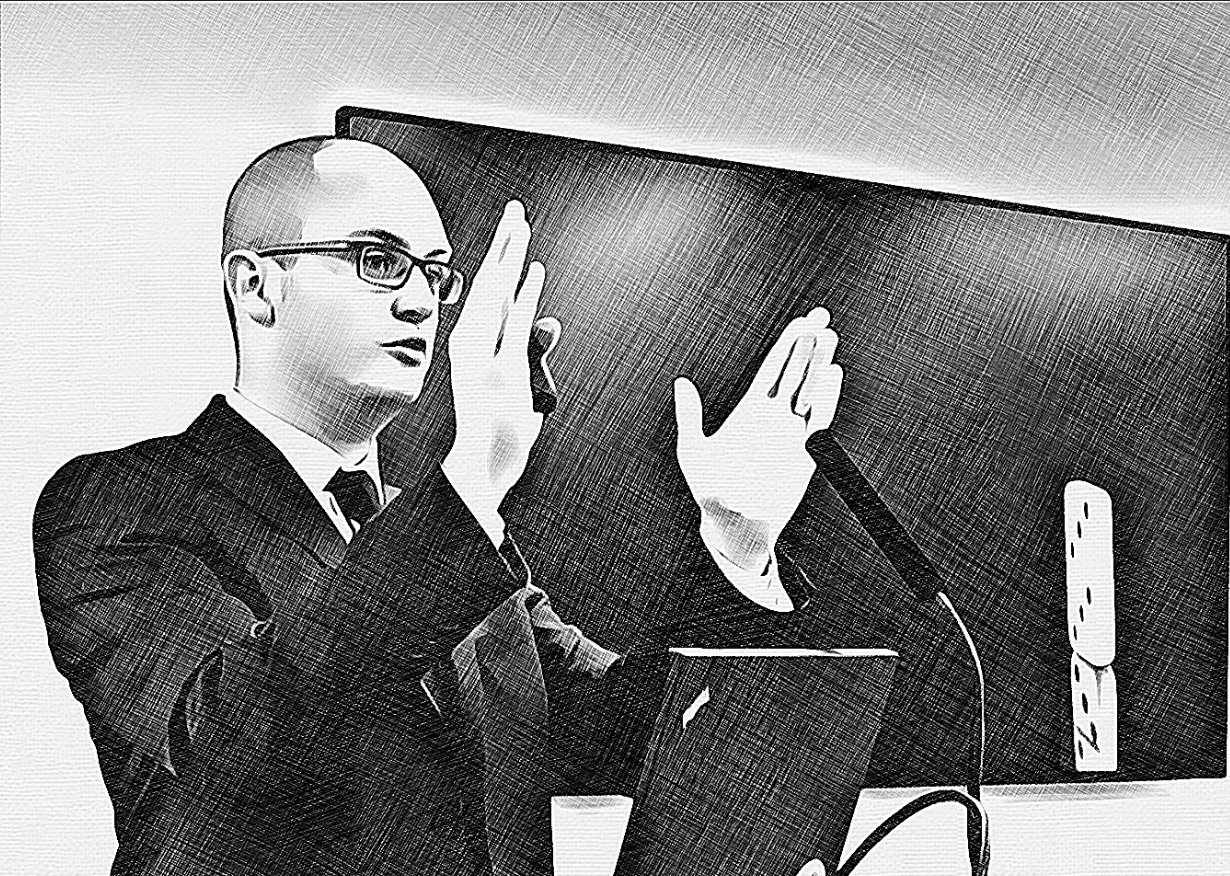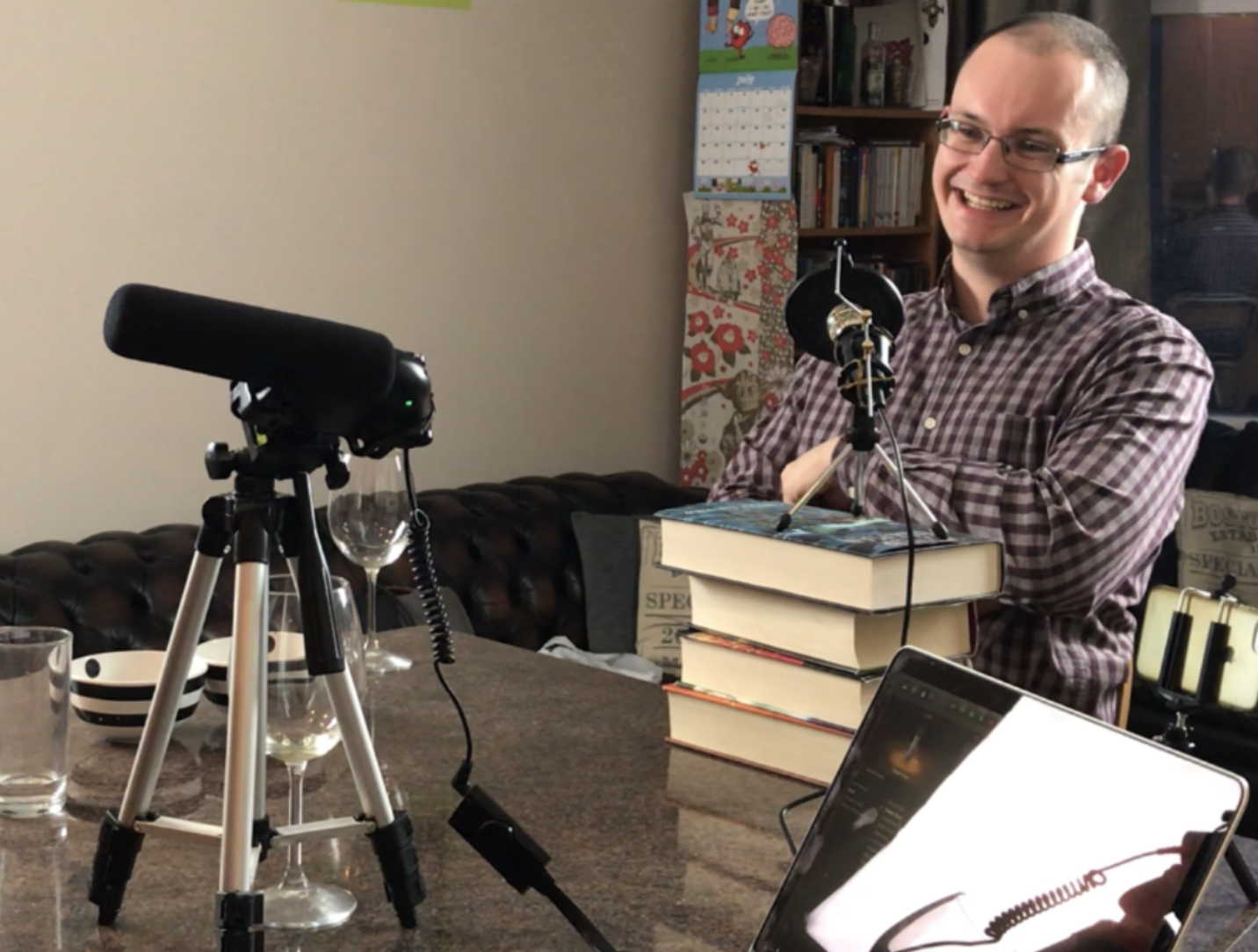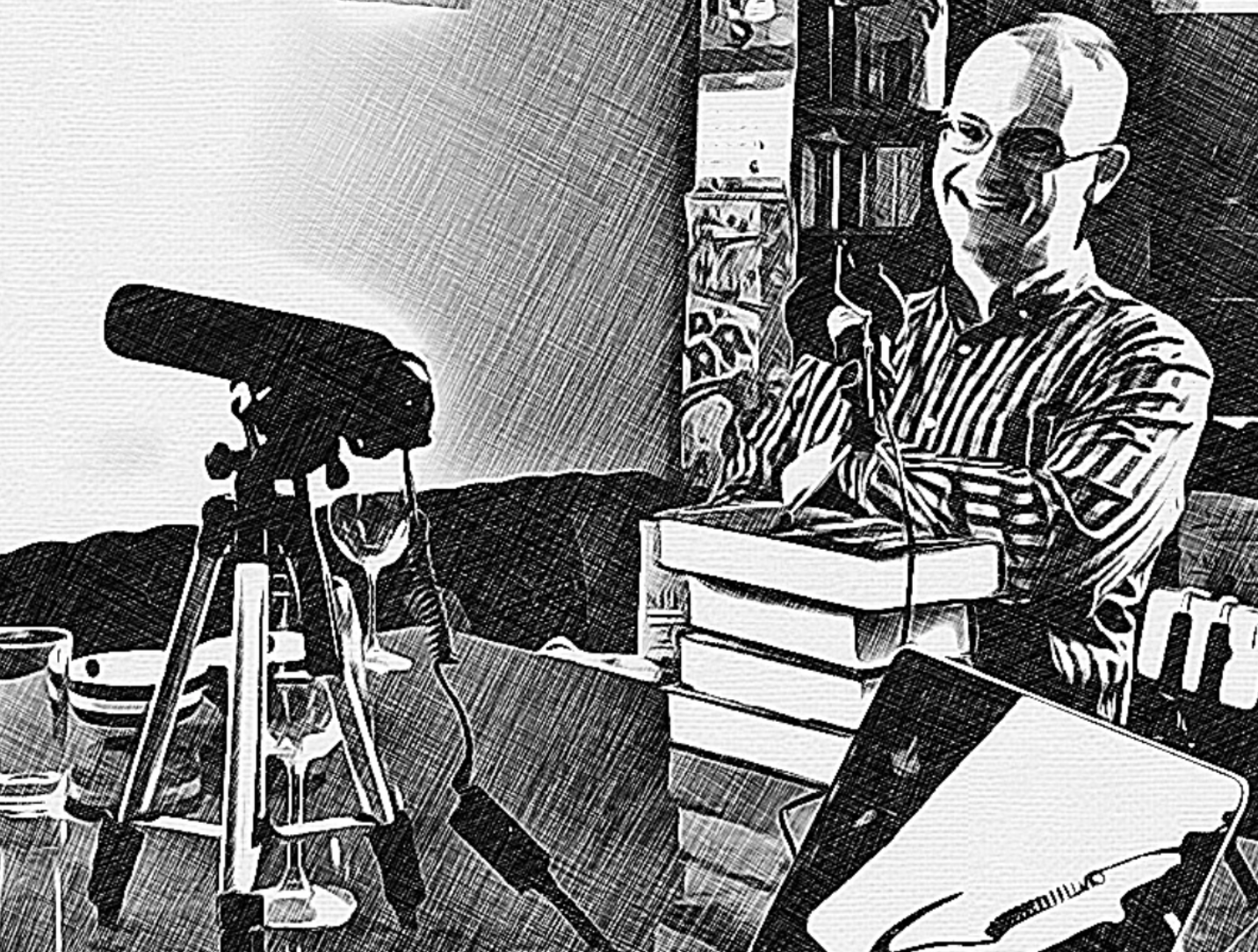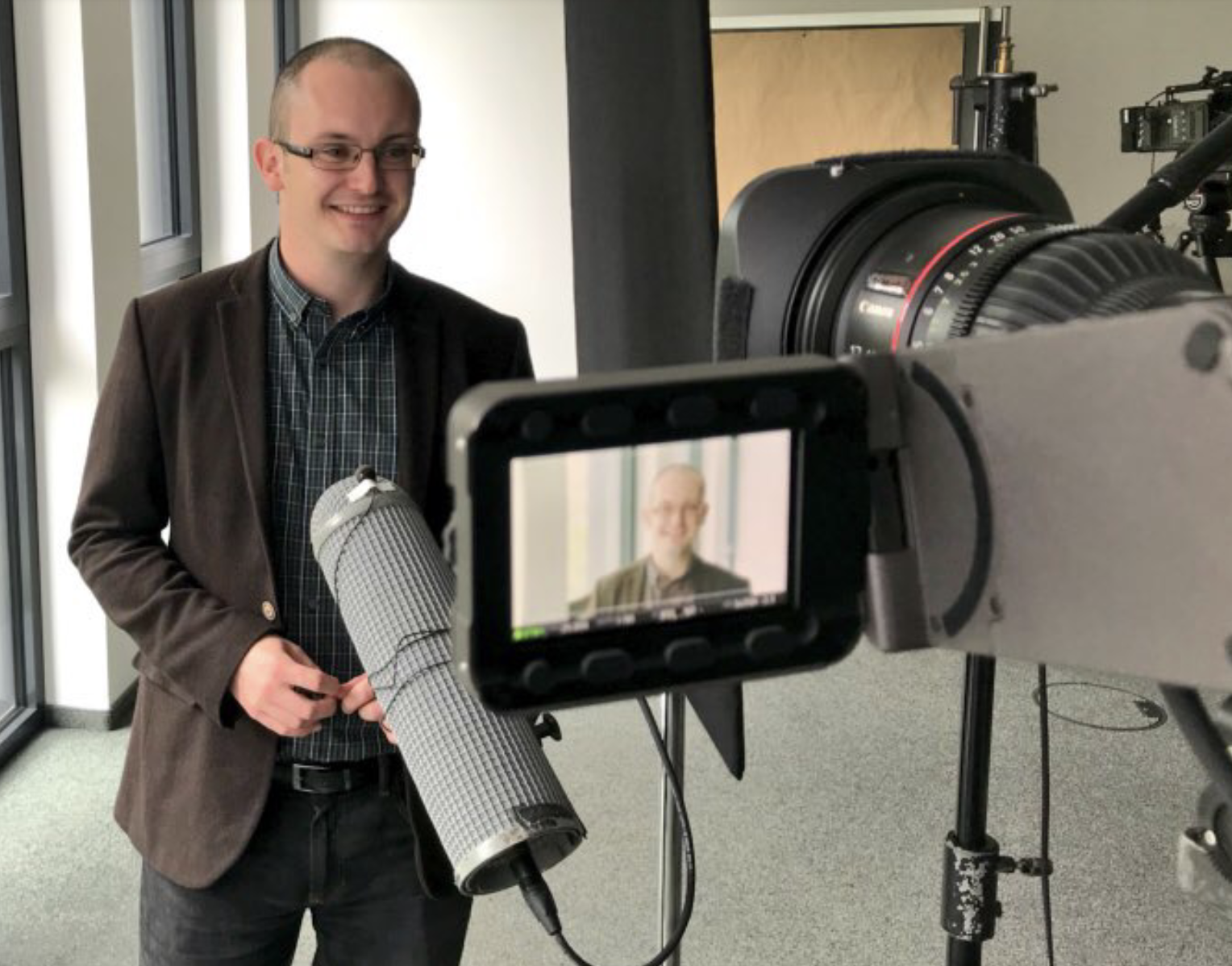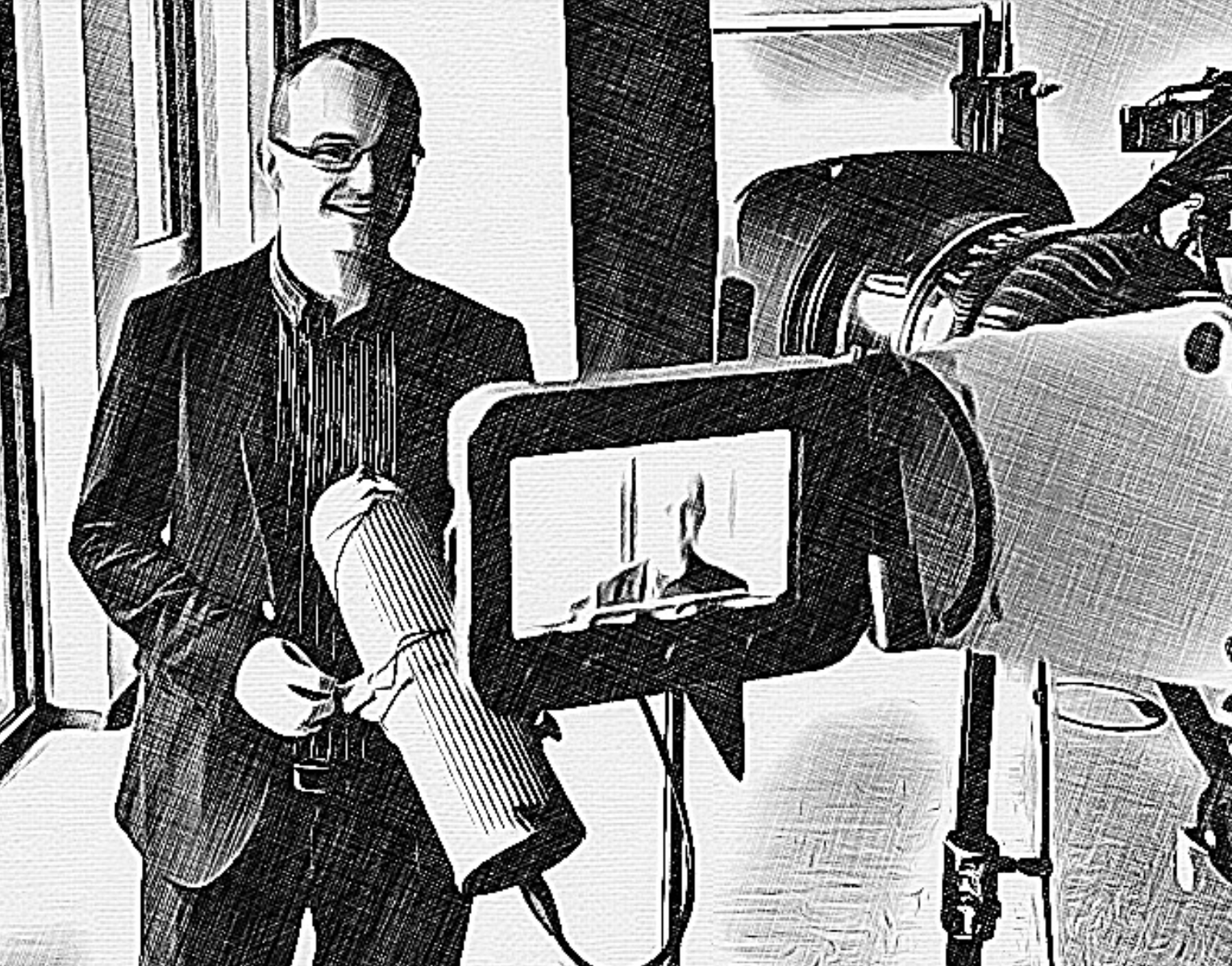
“...people won’t remember what you said or did, they will remember how you made them feel.”
Marc is a passionate public speaker whose invited keynotes and workshops span science, safety, research, leadership, entrepreneurship, and career development.
Listen to Marc’s introductory message from the complementary video lesson series that runs alongside the main workshop:
WHAT AUDIENCES ARE SAYING
“Marc is the best speaker I have listened to in the Safety circuit. His story telling ability, presentation skills, and delivery are first class. He engaged everyone in the room and we had overwhelmingly positive feedback from all of those who attended. ”
“I was overwhelmed and impressed with how calmly and well Marc spoke about a matter so very close to him...the information about the ‘domino effect’ applied to us all in the room in some way.”
“A deeply moving and brilliantly told [safety] story that will live with the audience for a long time. ”
“He is an engaging speaker with a great sense for his audience. Marc made nuanced material very clear, and he was highly effective in delivering his message. In watching him present, I was keenly aware of the abilities which made him a CAS Future Leader in the first place and I believe any organization would benefit from his perspective.”
“Marc’s talk was witty and engaging. Our PhD Scholars greatly valued his personal insights into life as an early career researcher and appreciated his taking the time to talk to them individually throughout the day.”
“Marc is a wonderful speaker. His stories make for compelling listening and have real impact.”
SOCIAL RESPONSES

MORE FEEDBACK FROM MARC’S AUDIENCES
“Marc’s course was very interactive and fostered a sense of community.”
“I loved how Marc used cohort responses to take us through each term and topic.”
“I enjoyed the “realness” of Marc’s approach. I didn’t feel like I was being lectured to - very relatable.”
“Marc’s workshop was very interactive and created a community.”

A light wind carried my father’s ashes into the North Sea when he was just 48 years old.
The 1988 Piper Alpha Disaster was the beginning but far from the end.
Pre-Site Safety is a safety impact speaking service born of that struggle.
This is a story on the importance of safety over the long-term.
When I was very young, I noticed that there was something odd about my father’s hands. His hands somehow looked older than they were supposed to. They were wrinkled, rough, and red; out of place among the otherwise youthful features of a man in his late 20s. As I grew up, I learned that those funny wrinkles on my father’s hands were, in fact, burn scars. Skin grafts served as a crystallised, ever-present memory of the most traumatic experience in his life. He was one of the 61 survivors of the Piper Alpha Disaster. Thirty years on, this is the story of growing up with a terrific but troubled father who eventually succumbed to the psychological struggles of living with an unimaginable horror. This is how I came to appreciate safety and make it part of my life as a scientist.
On 6 July, 1988, off the coast of Aberdeen, safety breaches caused a cascade of gas explosions on the Piper Alpha oil rig, killing 167 men. It remains the most devastating incident of its kind to this day. I was just three months old at the time. In my earliest years, I was protected from the truth. The burns on my father’s hands were just little oddities to a curious toddler. As I matured, so too did my father’s willingness to share the harrowing detail of his experience aboard Piper Alpha and his unlikely escape from the ferocious fire.
From the time of the first gas explosion, my father and his nearby colleagues struggled to move from the gallery and living quarters to anywhere outside. Anywhere cooler. Anywhere with clean air.
As the flames and the smoke consumed every corner of the structure, the light from a friend’s torch and a series of chance events led my father and the man with the torch to the scorching helideck atop the rig. Parched from the smoke and burned by the flames, my father was faced with an impossible choice: jump or die.
He jumped. His friend could not. From a height greater than six double-decker buses stacked one on top of the other, his adrenaline-spiked thoughts turned to home. As I listened to my father recount the experience, he showed me old newspaper clippings in which he reported thinking of me, his new-born son, as he made that choice on the helideck. He jumped 174 feet, falling through six seconds of silence before crashing into the oil-coated blackness of the North Sea. Kicking loose his heavy boots, he floated away from the glowing remains of Piper Alpha, passed lifeless bodies and chunks of debris, waiting to be rescued. He came home. His friend with the torch did not.
My father’s survival meant that I was lucky enough to grow up with him in my life. I have many beautiful memories of him doing anything to make us – me, my mother, and two younger brothers – laugh. But among these wonderful memories are the more troublesome recollections of a man who struggled to come to terms with the disaster he had survived. Why did he make it off the rig and his friends did not? How was he able to get out when he had resigned himself to dying alone in the smoke? Why did he live and the man with the torch did not?
As part of his early attempts to come to terms with his experience, my father travelled to Wales to attend the funeral of his friend whose torchlight saved his life. I cannot imagine what that was like.
In a lifelong mental battle with Piper Alpha, my father struggled with alcoholism, broken relationships, and a world not yet ready to understand post-traumatic stress disorder (PTSD). I watched on as he recovered and relapsed, in a vicious cycle of positivity then pain, positivity then pain. In 2011, he fell victim to his alcoholism and died from related health complications. His name was Mark Archibald Reid. He was 48 years old.
Accidents and safety breaches like those on Piper Alpha cost more than financial damages. The families of those who died endure the loss of a loved one. The survivors are haunted by the memory of their unshakeable ordeal.
Since that fateful day, safety training has evolved significantly to ensure every preventative measure is taken to avoid such incidents from happening again. Great progress has been made but there is still much to be done to protect us from history repeating itself.
My father’s story is a sad one but it has become my inspiration. In my professional life as a scientist, I now work to affect positive changes to safety training practices in dangerous workspaces. And as I start my own family, I think again about how my father thought of me during his escape from the clutches of certain death. I realise that I cannot turn back the clock on the tragedy of the past, but I can use the privilege of my profession to help make sure we stop these accidents from ever happening again…
“The accident is only the first domino to fall.”
Dr Marc Reid’s father was 1 of 61 survivors of the 1988 Piper Alpha Disaster that killed 167 men.
Whilst it remains one of the worst Oil & Gas sector accidents of all time, it was only the beginning of a much darker story for Marc’s father. Through this personal story and professional scientific safety experience, All the Dominoes Fall educates safety managers and frontline workers about the potential long-term hidden implications of safety failures.
The Service
Our engagement begins with a 30-minute presentation from Marc, recounting his father’s story of having escaped and endured the horrors of the 1988 Piper Alpha oil rig disaster. During the presentation, it is noted that the Piper Alpha Story is, alas, one of many large-scale disasters reported within the broad spectrum of process-scale operations.
The central story in the talk enables us to share our peer-reviewed and published concept of The Domino Fallacy, and how to visualize the long-term impact of accidents.
The message threaded through all that Marc reveals during his presentation is summarized in the analogy of dominoes falling one after the other. Safety-related failures can be thought of as a single domino. The trap we can fall into is looking at the first domino face on. We often do not look forward to see all the dominos that fall after the initial incident. For Marc’s father, the Piper Alpha Disaster was just the first domino to fall. Those dominoes that fell after the accident are represented, in part, by Marc’s father’s lifelong struggle with post-traumatic stress disorder (PTSD), alcoholism, broken relationships, and loss of working livelihood.
At the end of every presentation, we invest unlimited time for question and answer sessions.
GOING BEYOND THE EVENT
We want our safety message and content to live on after any event.
Through our service, every individual instance of All the Dominoes Fall comes with:
1. Marc’s talk itself. Personalised for your audience.
2. An audio recording of the personalised event.
3. Audio highlights in the form of a podcast.
4. Video highlights.
5. A written debrief report, containing detailed references and expansion on any Q&A.
And more! All of which is discussed as part of your booking.
WHAT AUDIENCES SAY
“I was overwhelmed and impressed with how calmly and well Marc spoke about a matter so very close to him...the information about the ‘domino effect’ applied to us all in the room in some way.”
“I found it inspiring how Marc turned a massive negative into a positive.”
“A deeply moving and brilliantly told [safety] story that will live with the audience for a long time.”
SURVEY FEEDBACK
When asked how they would rate Marc’s safety speaking skills on a scale of 1 (terrible) to 5 (exceptional), our audiences said:
100% agreed
Storytelling rated as 4 or 5 out of 5. 82% said 5/5.
100% agreed
Easy to understand rated as 4 or 5 out of 5. 82% said 5/5.
100% agreed
Memorable rated as 4 or 5 out of 5. 86% said 5/5.
100% agreed
Would highly recommend this speaking service to colleagues outside their organization.
Anonymous survey FEEDBACK quotes
“It was an inspiring talk!” ”
“Very inspiring talk which I think had much more impact on most of the audience than a ‘classical’ safety seminar.”
“Keep on bringing this story!””
“I got a lot of feedback from layers in the organisation that it was an eye opening story on safety.”
“It was a hard-hitting presentation and it made me feel pretty sad at such a personal experience being presented. Saying that it very much got the point across and I thank Marc for that. I doubt I’ll ever forget.”
“I think [Marc] could not get the message across any clearer...very moving…I, for one, could not speak.”
“It was a very high impact talk, and one that I won’t forget. It really opened my eyes to that ripple effect that I was already aware of, but to hear the true story behind the disaster really brought things home.”
Marc was the 2021 recipient of the IChemE Hanson Medal for contributions to long-term vision in process safety. This included the introduction of Marc’s Domino Fallacy concept in an article for The Chemical Engineer.
Award for contributions to long-term thinking in safety
IN-PERSON OR ONLINE
Impactful speaking is unrestricted by travel or geography challenges. All elements of Marc’s speaking service are also available for virtual events, on request.
ARTICLES
ALL THE DOMINOES FALL
A TRANSFERABLE PSYCHOLOGICAL EVALUATION OF VIRTUAL REALITY APPLIED TO SAFETY TRAINING IN CHEMICAL MANUFACTURING
A peer-reviewed research article sharing the quantified psychological benefit of VR versus classroom safety training.
Medal-winning perspective piece for The Chemical Engineer, discussing long-term thinking and introducing Marc’s Domino Fallacy concept.
SON OF PIPER ALPHA SURVIVOR PUBLISHES RESEARCH INTO ‘MORAL COST’ OF DISASTERS
Interview with Allister Thomas for Energy Voice.
A PERSONAL PERSPECTIVE WITH TRANSFERRABLE LESSONS ON THE LONG-TERM MORAL IMPACT OF SAFETY FAILURES
Peer-reviewed perspective in ACS Chemical Health & Safety
MOTIVATIONS FOR DEVELOPING SAFER CHEMISTRY
A safety-focused interview with Dr Katherine Geogheghan for Nature Chemistry.
Editorial perspective for Nature Chemistry, highlighting the need for more safety research.











